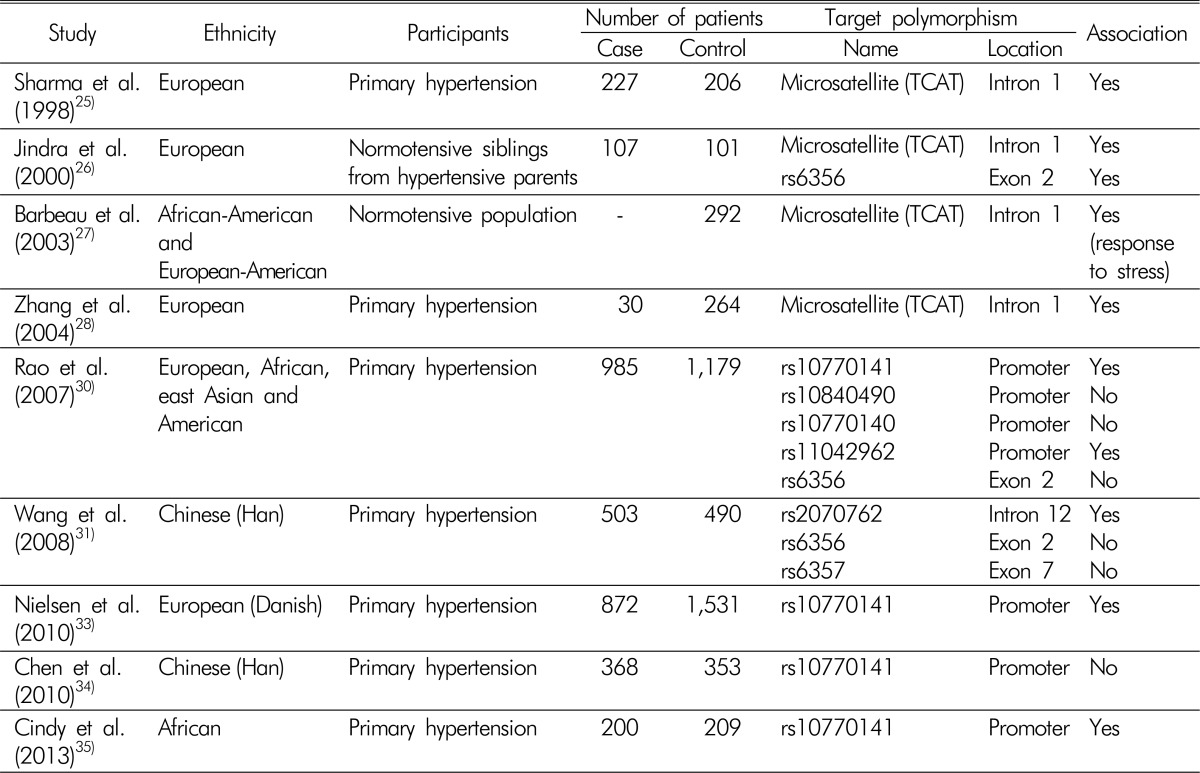Genetic Variations of Tyrosine Hydroxylase in the Pathogenesis of Hypertension.
Q3 Medicine
Electrolyte and Blood Pressure
Pub Date : 2016-12-01
Epub Date: 2016-12-31
DOI:10.5049/EBP.2016.14.2.21
引用次数: 9
Abstract
One of the major pathophysiological features of primary hypertension is an inappropriate activation of the sympathetic nervous system, which is mediated by excessive synthesis and secretion of catecholamine into the blood. Tyrosine hydroxylase (TH), a rate-limiting enzyme in the synthesis of catecholamine, has been highlighted because genetic variations of TH could alter the activity of the sympathetic nervous system activity and subsequently contribute to the pathogenesis of hypertension. Here, we discuss the role of TH as a regulator of sympathetic activity and review several studies that investigated the relationship between genetic variations of TH and hypertension.

酪氨酸羟化酶在高血压发病机制中的遗传变异。
原发性高血压的主要病理生理特征之一是交感神经系统的不适当激活,这是由过量的儿茶酚胺合成和分泌到血液中介导的。酪氨酸羟化酶(Tyrosine hydroxylase, TH)是儿茶酚胺合成中的一种限速酶,由于TH的遗传变异可能改变交感神经系统的活性,从而导致高血压的发病机制,因此被强调。在这里,我们讨论了TH作为交感神经活动的调节者的作用,并回顾了一些研究TH遗传变异与高血压之间关系的研究。
本文章由计算机程序翻译,如有差异,请以英文原文为准。
求助全文
约1分钟内获得全文
求助全文

 求助内容:
求助内容: 应助结果提醒方式:
应助结果提醒方式:


